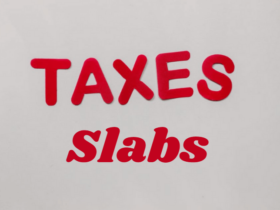What Is an Index Fund?
An index fund is an investment or type of mutual fund or exchange-traded fund (ETF) that tracks a market index, usually made up of stocks or bonds.
It places all the securities in a specific index. With the goal of matching the performance of that benchmark to the extent possible.
Index funds typically invest in all the components that are included in the index they track. And they have fund managers whose job is to ensure that the index fund does the same as the index does.
An index fund creates a portfolio of stocks that reflect the collection of companies. And the performance of market indices such as the S&P 500.
You can buy index funds through your brokerage account or directly through an index-fund provider, such as BlackRock or Vanguard. Index funds are managed passively and have lower fees than actively managed funds, which often generate higher investment returns.
When you buy an index fund, you get a diverse selection of securities in an easy, low-cost investment. Some index funds provide exposure to thousands of securities in a single fund. Which helps reduce your overall risk through extensive diversification.
By investing in multiple index funds and tracking various indexes. You can create a portfolio that matches your desired asset allocation.
Why invest in index funds?
One of the easiest and effective ways for investors to invest in index funds is to create wealth.
Just by matching the impressive performance of financial markets over time, index funds can turn your investment into a giant nest egg in the long run – and best of all, you don’t have to be a stock market expert to do it.
Investors find index funds especially useful for many reasons:
- Spend your time researching individual stocks. Instead, you can rely on the fund’s portfolio manager to invest in an index that already contains shares in which you want to invest.
- You can invest with less risk. Most indexes include dozens or even hundreds of stocks and other investments, and if something bad happens to one or two companies in the index, diversification reduces the likelihood of a large loss.
- Index funds are available for various types of investments. You can buy stock index funds and bond index funds, which cover two major parts of most people’s investment strategies.
- It is very expensive. Index funds are generally much less expensive than alternatives such as actively managed funds. This is because an index fund manager only has to buy stocks or other investments in an index – you do not need to pay them to try to come up with their own stock picks.
- You will pay less in taxes. Index funds are quite tax-efficient compared to many other investments. For example, index funds do not have to buy and sell their holdings as much as actively managed funds.
- It is very easy to stick to your investment plan. When you use index funds, you can invest on your own from month to month and ignore short-term fluctuations, confident that you will share in the market’s long-term growth.
READ ALSO: What Is a Portfolio? And How to Build a Portfolio
Benefits of Index Funds
The most obvious benefit of index funds is that they have consistently beaten other types of funds in terms of total returns.
A major reason that they generally have a much lower management fee than other funds is that they passively managed.
Instead of a manager actively trading and a research team analyzing securities and making recommendations, the portfolio of an index fund mimics its assigned index.
Index funds invest until the index itself changes (which is not very frequent), so they also have lower transaction costs. Those low costs can make a big difference in your returns, especially in the long haul.
By trading in fewer securities than actively managed funds, index funds generate less taxable income that must be passed along to their shareholders.
Index funds still have another tax benefit. Because they buy new lots of securities in the index, whenever investors invest money in the fund, they may have hundreds or thousands of lots to choose from when selling a particular security.
This means that they can sell the lot with the lowest capital gains and, therefore, deduct the lowest tax.
How to Invest in Index Funds
1. Pick an index
There are hundreds of different indexes that you can track using index funds. The most popular index is the S&P 500 index, which includes the U.S. top companies.
But the S&P 500 is not the city’s only index. Indices are – and related index funds – made up of stocks or other assets chosen based on:
- Company size and capitalization: Index funds that track small, medium-sized, or large companies (also known as small-, mid-, or large-cap indices).
- Geography: These funds focus on stocks that trade on a combination of foreign exchange or international exchanges.
- Business sector or industry: Funds focusing on consumer goods, technology, healthcare-related businesses.
- Asset type: Funds that track domestic and foreign bonds, commodities, cash.
- Market opportunities: Emerging markets or other nascent but growing sectors for investment.
2. Select the right fund for your index
Once you select an index, you can usually find at least one index fund that tracks it. For popular indexes such as the S&P 500, you may have a dozen or more options tracking the same index.
Low cost is one of the biggest selling points of index funds. They are cheap to run because they are automated to follow a change in price in an index. However, do not assume that all index mutual funds are cheap.
Even though they are not actively managed by a team of well-paid analysts, they bear administrative costs. These costs are taken as the percentage of their overall investment minus each fund shareholder’s return.
Here are some main costs to consider when selecting funds:
- Investment minimum: The minimum amount required to invest in a mutual fund can be more than a few thousand dollars. Once you exceed that limit, most funds allow investors to add money in small increments.
- Account minimum: This is different from minimum investment. However, a brokerage account may have a minimum of $ 0 (common for clients opening a traditional or Roth IRA), which will not remove the minimum investment for a particular index fund.
- Expense ratio: It is subtracted from the returns of each fund shareholder as a percentage of the total investment of each main shareholder. Find out the expense ratio in the prospectus of a mutual fund or when you bid for a mutual fund on a financial site.
- Tax-cost ratio: In addition to paying fees, the fund’s proprietary capital gains can trigger taxes if held outside tax-facilitated accounts such as 401 (k) or IRAs.
3. Buy Index fund Shares
To buy shares in your chosen index fund, you can usually open an account directly with the mutual fund company that provides the fund.
Alternatively, you can open a brokerage account with a broker that allows you to buy and sell shares of index funds in which you are interested.
In deciding which method is best for buying your index fund shares, it pays to look at the costs and features.
Some brokers charge additional fees for their clients to purchase index fund shares. Making it cheaper to go directly through an index fund company to open a fund.
However, many investors prefer to keep all their investments in a single brokerage account. If you presume to invest in many different index funds offered by different fund managers, then the brokerage option may be the best way to combine all your investments under a single account.
Frequently Asked Question
ANS: There are some certainties in the financial world, but there is almost zero possibility that any index fund can ever lose all its value. Because index funds are low-risk, investors will not make the large gains that they can from high-risk individual stocks.
ANS: Fidelity ZERO Large Cap Index.
Vanguard S&P 500 ETF.
SPDR S&P 500 ETF Trust.
iShares Core S&P 500 ETF.
Schwab S&P 500 Index Fund.
ANS: As a general rule, index fund investing is better than investing in individual stocks because it costs less, eliminates the need to study earnings reports consistently from companies, and is almost certainly “average” As a result, it is better to lose your hard work. Spending money on a bad investment.
READ ALSO: How To Invest In Real Estate: Best Ways to Get Start
READ ALSO: How to Start Investing in Stocks








